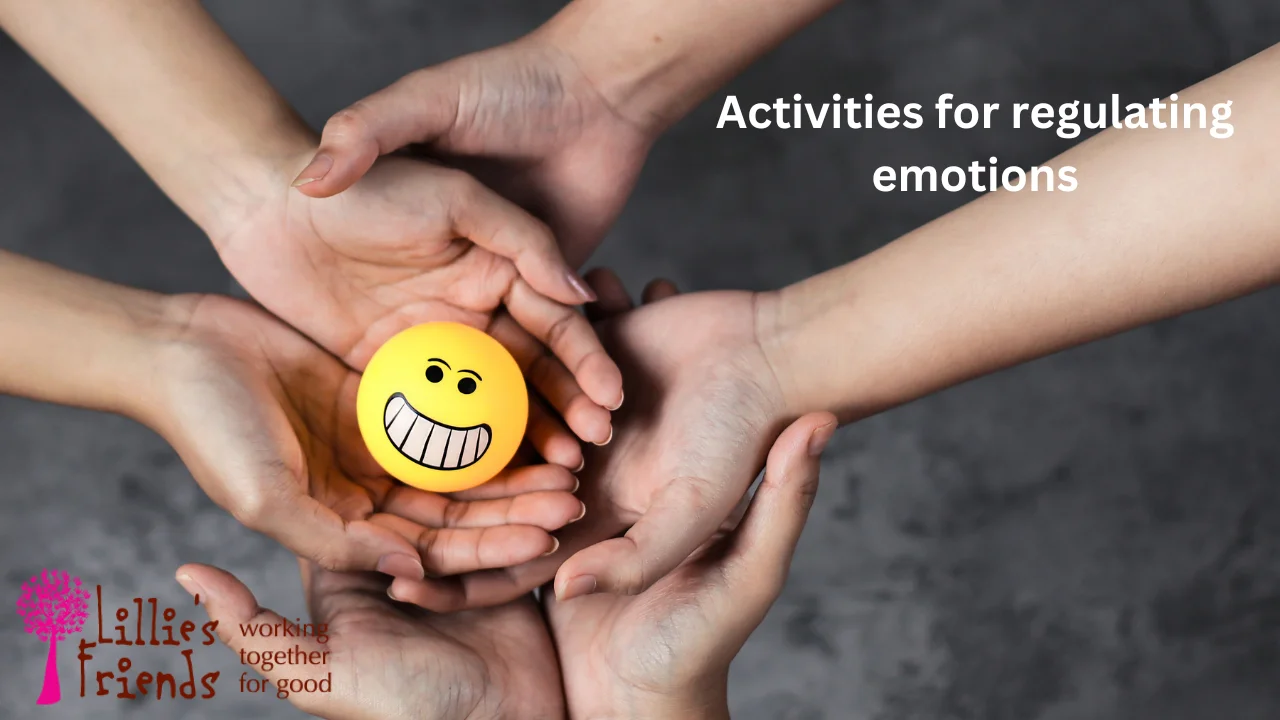The term ’emotions’ is frequently encountered without much contemplation regarding its significance. Emotions are a fundamental component of human existence; therefore, maintaining mental health and stability requires the capacity to identify and affirm them.
Part 1 of the series entailed an examination of the diverse range of emotions, their potential associations with bodily reactions, and the identification of latent emotions that may be at play.
Nevertheless, the capacity to regulate one’s emotions can significantly impact one’s approach to dealing with challenging circumstances. We will examine emotional regulation in this article, including its definition and significance, as well as the tools and activities that can assist you in becoming more attuned to your emotions and managing them more effectively in the present.

Consciousness of Emotions
The benefits of acknowledging and validating our emotions are manifold:
- Enhanced self-consciousness. Engaging in the process of acknowledging and validating our own emotions enhances our consciousness regarding the ways in which they influence our conduct. Additionally, it enables us to comprehend why we feel the way we do in particular situations and to develop more effective coping mechanisms for our emotions.
- Improved levels of communication. The act of acknowledging and affirming emotions has the potential to enhance interpersonal communication by facilitating comprehension of others’ sentiments and enabling the constructive expression of our own emotions.
- Strengthened relationships. Acknowledging one another’s emotions can contribute to the development of trust and the reinforcement of interpersonal bonds. It also enables individuals to better comprehend how their emotions affect the relationship and promotes candidness and transparency regarding one’s emotions.
- Attenuated tension. Emotion validation may contribute to a reduction in tension. By cultivating emotional self-awareness and engaging in constructive expression, individuals can enhance their capacity to regulate and endure stressful circumstances.
- An improvement in mental health. A greater sense of emotional well-being can assist individuals in managing their mental health more effectively when they acknowledge and validate their emotions.
Activities for regulating emotions
Engaging in activities that promote emotional regulation is vital for both self-care and mental health. They can facilitate the development of healthy coping mechanisms, improved emotion and reaction regulation, and increased resilience in the face of adversity and duress. It is more crucial than ever to possess strong emotional regulation skills in the modern world.
The following practices may assist you in exercising emotional control:
- Physical exercises. An increase in physical activity can alleviate tension and enhance mood.
- The concept of time in nature. Time spent in nature can be therapeutic and aid in mental clarity. Even engaging in physical activity such as strolling or riding a bicycle can yield positive effects.
- Take deep breaths. By taking deliberate, deep breaths, one can effectively regulate their emotions. Simply concentrating on the breath, counting breaths, or mindful breathing are all examples of breathing exercises that can accomplish this. This uncomplicated exercise has the potential to decrease sensations of tension or anxiety and decelerate the heart rate.
- Progressive relaxation of muscles. Commence by contracting and relaxing every muscle group in the ankles and ascending the body.
- Practicing mindfulness. Present-moment concentration and awareness of one’s thoughts and emotions are essential.
- Engaging in meditation. Mindful meditation can assist in calming the mind and bringing attention to the present moment.
- Dialing it over. Explain your emotions to a family member or friend in a conversation. Describing the reasons for one’s emotions through conversation can be beneficial.
- The practice of journaling. Document your emotions and beliefs in writing. It can be beneficial to elucidate and constructively articulate one’s emotions.
- Constructive self-dialogue. Self-talk and positive affirmations are both effective methods for altering one’s thoughts and emotions regarding a given circumstance. This can be accomplished through the use of positive affirmations introspectively or in written form.
- The use of aromatherapy. Essential oils such as sandalwood, lavender, and chamomile can be utilized to promote mental and physical relaxation.
Keep in mind that activities for emotional regulation are not fast fixes. The benefits of investing time and effort into developing these skills are well worth the effort. One can cultivate emotional regulation skills and enhance their capacity to withstand adversity through consistent practice.
When to Seek Expert Assistance?
Certain individuals may find it challenging to acquire and effectively utilize healthful coping mechanisms in order to regulate their emotional reactions. Emotions can become overwhelming and result in undesirable behavior if not properly managed.
A few indicators may suggest that professional assistance with emotional regulation is warranted:
- Your inability to regulate your responses to stress and other challenging circumstances causes you to experience feelings of anxiety, remorse, humiliation, or inadequacy.
- You undergo extreme mood fluctuations, such as experiencing an extreme low mood one moment and an extreme high mood the next.
- You develop a pattern of self-destructive behavior, such as engaging in hazardous activities, substance abuse, or alcohol consumption.
- You feel as though you are unable to fulfill your daily obligations and responsibilities.
- You feel as though self-harm or injury to others is imminent.
The Bottom Line
The ability to regulate emotions grants one command over their reactions. Additionally, these abilities boost your confidence in your capacity to manage any challenge through the use of straightforward yet impactful strategies delineated in this article.











